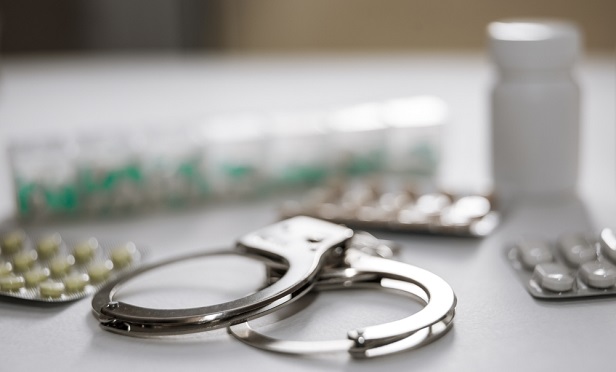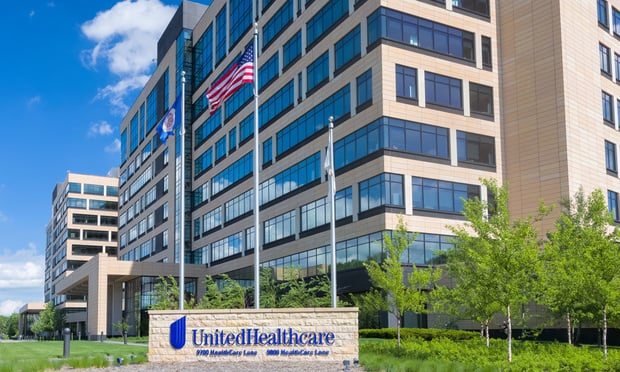 Federaljurors found that Insys Therapeutics Inc. founder John Kapoorconspired to bribe doctors to pump up sales of its opioids. (Photo:Shutterstock)
Federaljurors found that Insys Therapeutics Inc. founder John Kapoorconspired to bribe doctors to pump up sales of its opioids. (Photo:Shutterstock)
Insys Therapeutics Inc. founder John Kapoor was convicted of aracketeering conspiracy that drove sales of a highly addictiveopioid while contributing to a nationwide epidemic.
|Federal jurors in Boston found that Kapoor conspired with fourother executives to bribe doctors to pump up sales of Subsys andduped insurers into covering shady prescriptions. Former vicepresident Michael Gurry, ex-national sales director Richard Simon,former regional sales director Joseph Rowan, and one-time stripperturned Insys sales manager Sunrise Lee were also found guilty.
|Kapoor is the first chief executive officer of an opioid makerto be convicted at a trial. The verdict signals that the public iswilling to hold pharmaceutical executives accountable for the U.S.crisis and comes as thousands of state and local governments presscivil lawsuits against drugmakers to recover billions of dollarsspent combating the epidemic.
|Related: The opioid epidemic claims its first corporatevictim
|“A conviction will embolden prosecutors in other cases,” PaulKalb, a partner at Sidley Austin LLP who specializes in health-carefraud, said in an interview. “Kapoor will be plainly portrayed asone of the instigators of the opioid crisis. But the truth is thisis a very complex problem that was not caused by any single personor company.”
|The verdict came on the 15th day of deliberations after a10-week trial. It marks a steep downfall for Kapoor, who worked hisway from modest means in India to start what would turn into amultibillion-dollar drugmaker. Still Insys's controllingshareholder, he will be forced to sell his shares and may face hugefinancial penalties.
|Kapoor's reaction
Kapoor looked down as the verdict was read, his hands folded infront of him. The judge denied a U.S. request that Kapoor be placedunder house arrest before he's sentenced. The maximum penalty is 20years behind bars.
|“Dr. Kapoor is disappointed in the verdict, as are we,” defenseattorney Beth Wilkinson said. “Four weeks of jury deliberationsconfirm that this was far from an open-and-shut case.” She saidthey'd keep fighting to clear Kapoor's name.
|Even though Kapoor has stepped down as Insys's chairman and CEO,he still holds more than 60 percent of its stock.
|“Kapoor's shares have been and will remain managed by anindependent trust with which Kapoor is not involved,” Insysspokeswoman Jackie Marcus said in a statement. “It is expected thatthis arrangement will continue pending final decision on thedisposition of those shares.”
|Marcus said the actions of a “select few former employees”aren't indicative of the work conducted by the the team at Insyswho, she said, have dedicated themselves to improving the lives ofpatients. The Chandler, Arizona-based drugmaker's shares fell 1.7percent to $4.15 Thursday in New York trading.
|Akorn stake
Kapoor remains the majority shareholder in anotherpharmaceutical company, Akorn Inc. Akorn shares fell 1.8 percent inNew York. The stock is down more than 20 percent this year.
|The verdict could also jeopardize Kapoor's stake in Akorn. TheDepartment of Health and Human Services has power to bar personsconvicted of certain crimes from holding a 5 percent or greaterstake in a company that receives federal health-care dollars.
|Lee, a single mother of two, was near tears as her mother huggedher after court. “We were expecting a different result,” herlawyer, Peter Horstmann, said.
|At the trial, prosecutors took jurors deep into the innerworkings of Insys while putting on display some of its moresensational practices. Some of the government's 39 witnessesoffered racy testimony about how the company lured doctors intowriting more Subsys prescriptions with sexy sales reps, lap dancesand lavish dinners at restaurants that Kapoor owned. Prosecutorssaid Kapoor and his subordinates used a speaker's program to bribedoctors who pushed their drug.
|Defense lawyers took aim at the prosecution's case throughaggressive questioning of government witnesses, seeking to showthat the case was weak. The defense took just two days and featureda handful of their own witnesses, including a patient who vouchedfor the benefits of Subsys.
|Neither Kapoor nor the other defendants testified.
|'Good for patients'
Prosecutors — including Assistant U.S. Attorney Fred Wyshak, whomade his name targeting organized-crime figures in Boston —methodically built their case over the years, bringing their firstcharges in 2015 against lower-level executives before chargingKapoor in 2017. The defense painted the government's witnesses asthe real villains, saying it was Burlakoff who came up with theidea of shoveling money to doctors while keeping that informationaway from Kapoor.
|In 2014, according to Symphony Health Solutions, Subsys had a41.6 percent share of the rapid onset opioid market for drugs thatact quickly to treat moderate to severe pain. Insys reached avaluation of $3.2 billion in July 2015, almost 10 times higher thanits current one.
|The jury's verdict is likely to register in drugmakers' boardrooms. Companies including Teva Pharmaceutical Industries Ltd.,Purdue Pharma LP, Johnson & Johnson and Endo International Plcare preparing to face trials over allegations by states and localgovernments that their sales campaigns fueled a crisis which iscosting billions of dollars annually.
|Meanwhile, efforts to use the legal system to hold executivesaccountable for an epidemic that claims more than 100 Americans'lives daily are gaining speed. The Sackler family, Purdue'sbillionaire owners, is facing a new wave of lawsuits over its rolein the marketing of OxyContin. They, like the companies, denywrongdoing.
|“Just as we would street-level drug dealers, we will holdpharmaceutical executives responsible for fueling the opioidepidemic by recklessly and illegally distributing these drugs,”Massachusetts U.S. Attorney Andrew Lelling said in a statement.“This is a landmark prosecution that vindicated the public'sinterest in staunching the flow of opioids into our homes andstreets.”
|Kapoor faced a single charge of a racketeering conspiracy. Thefirst person in his family to attend college, he earned a doctoratein medicinal chemistry at the University of Buffalo in 1972,according to a work-history the school posted.
|He was a plant manager at Invenex Laboratories in New York andlater became chief executive officer of LyphoMed, ahospital-products company. He sold LyphoMed to FujisawaPharmaceuticals and formed a venture capital firm that invested inhealth-care companies.
|“Working in health care is a public trust,” said Peter Pitts,the president of the Center for Medicine in the Public Interest anda former Food and Drug Administration associate commissioner. “Ifcompanies choose to sell drugs inappropriately to increase profits,the FDA and courts will step up to the plate and make sure they'renot able to do so.”
|The case is U.S. v. Kapoor, 16-cr-10343, U.S. District Court,District of Massachusetts (Boston).
|More updates on the opioidepidemic:
- Florida AG targets Walgreens, CVS in amended opioidlawsuit
- The tech industry wades into the fight againstopioid abuse
- There's a new, more powerful opioid on themarket
Copyright 2019 Bloomberg. All rightsreserved. This material may not be published, broadcast, rewritten,or redistributed.
Complete your profile to continue reading and get FREE access to BenefitsPRO, part of your ALM digital membership.
Your access to unlimited BenefitsPRO content isn’t changing.
Once you are an ALM digital member, you’ll receive:
- Critical BenefitsPRO information including cutting edge post-reform success strategies, access to educational webcasts and videos, resources from industry leaders, and informative Newsletters.
- Exclusive discounts on ALM, BenefitsPRO magazine and BenefitsPRO.com events
- Access to other award-winning ALM websites including ThinkAdvisor.com and Law.com
Already have an account? Sign In
© 2024 ALM Global, LLC, All Rights Reserved. Request academic re-use from www.copyright.com. All other uses, submit a request to [email protected]. For more information visit Asset & Logo Licensing.








